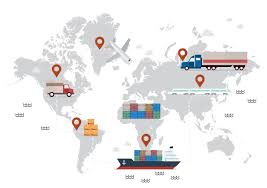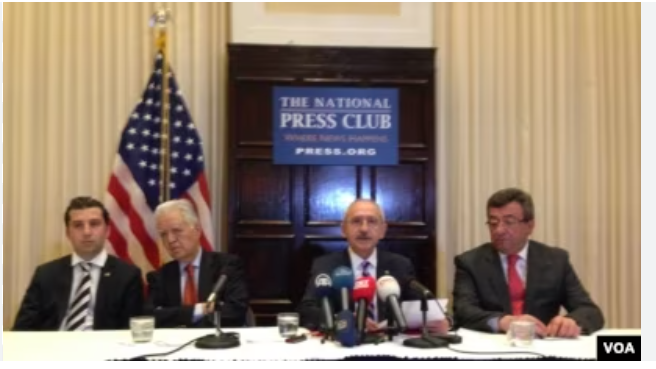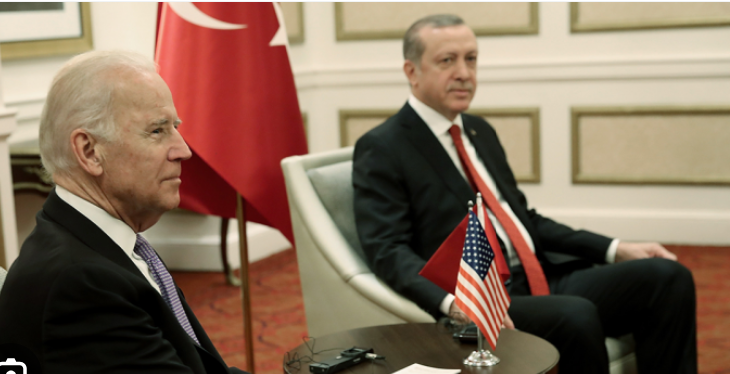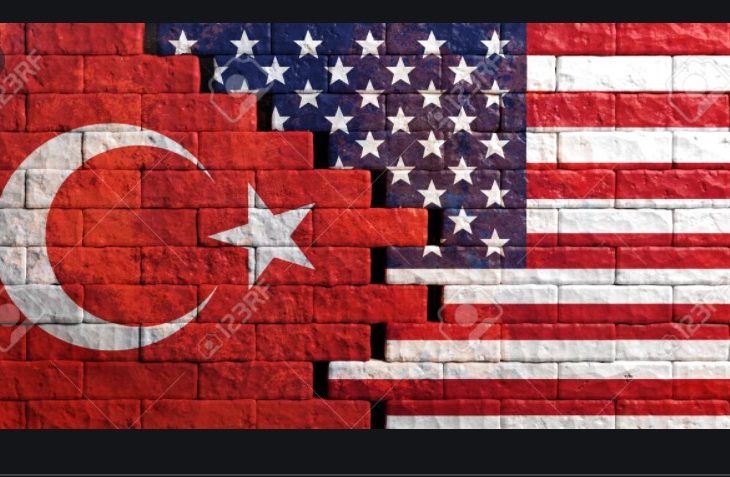What does US expect from Erdogan?
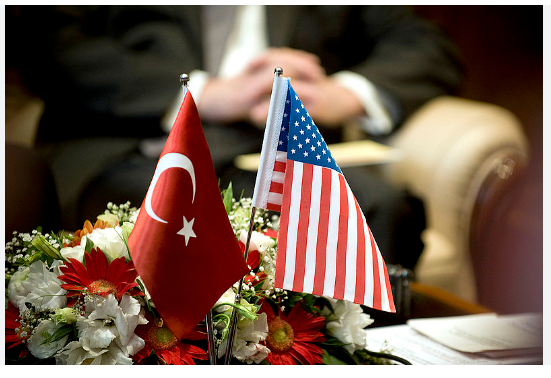 tr-abd1
tr-abd1
The Turkish presidential election was in the center of the US’s attention because of the significant tensions in US-Turkish relations in various fields under Erdogan’s rule. Erdogan seeks to minimize Western influence on Turkey and its economy, pursuing freedom of action in the Middle East, South Caucasus, Central Asia and a deepening of relations with Russia. That is why a different pro-Western figure in Turkey is preferable for the West.
Kilicdaroglu had all the chances to become such a pro-Western figure with whom the West hoped to develop less problematic relations. However, the United States did not openly endorse Kilicdaroglu in the elections. Instead, the US took a more cautious approach, realizing the high probability of Erdogan’s re-election. After all, Erdogan has been at the helm of the country since 2003, firstly as prime minister, and then as president of the country. With vast state resources and a large army of supporters at his disposal, Erdogan managed to defeat his main rival Kilicdaroglu, securing his rule until 2028.
At this stage, it is extremely important to look at Washington’s reaction to the Turkish elections in order to understand the messages behind the official statements and US mass media coverage of the election.
United States-Turkey relations have appeared strained in recent years, which is largely related to Erdogan’s personality and the latter’s deepening relations with Russia. Erdogan’s re-election as president is also seen by him and his supporters as a blow to the West, particularly the United States, which, according to Erdogan, tried to interfere in Turkey’s elections and promote his main opponent. Erdogan particularly resented the fact that the US ambassador in Ankara had a meeting with his political rival Kilicdaroglu. This was considered an intervention in Turkey’s elections by endorsing Kilicdaroglu. Thus, even during the election campaign, Erdogan and his supporters targeted the US and talked about the need to “teach them a lesson.”
Nevertheless, when the elections in Turkey were still ongoing, US officials avoided further commenting on the issue and even voicing their preferences, being wary of possible aggravation of the relations with Erdogan. During the press conferences of the US State Department, questions related to the elections in Turkey were regularly raised. However, the spokesman consistently reiterated the US official position that the United States “will continue to work together with the government chosen by the Turkish people to deepen our cooperation on a number of shared priorities.”
[embed]https://www.youtube.com/watch?v=0GdhwiA47Cw[/embed]
After the release of the final results of the elections, the United States congratulated Erdogan at the presidential level, with US President Joe Biden telephoning Erdogan. According to an official statement, the two presidents “expressed their shared commitment to continue working together as close partners to deepen cooperation between our countries and people.” US Secretary of State Antony Blinken also congratulated Erdogan, noting that “Türkiye is a valued NATO ally and partner” for the United States.
US think-tanks have come up with their predictions as to how Erdogan’s re-election will affect Turkey’s foreign policy and more specifically relationships with the USA. Overall, the re-election of an incumbent president suggests “continuity rather than change in foreign policy.” Three main pillars of Erdogan’s policy will continue to be implemented. These pillars include “strategic semi-independence (anchored by NATO with expansive caveats), balancing and hedging among great powers, and a carrot-and-stick mixture of hard power and adaptive diplomacy in Turkey’s immediate neighborhood.”
Hence, the dominant position is that Erdogan’s foreign policy will be more of the same.
Turkey will try to get the most out of relations with different and often conflicting countries: it will maneuver between Russia and Ukraine, foster relations with Gulf states in an attempt to get investments, take advantage of the warming relations with Israel to improve relations with the USA, and will attempt to isolate Greece through improving ties with Egypt.
In its foreign policy, Turkey is expected to be driven by a traditional “transactional” approach when it comes to major issues with its neighbors and beyond.
For instance, the Swedish accession to NATO, which is a serious challenge in US-Turkish relations, might be tied to the pending sale of F-16s to Turkey in Congress. Also, Erdogan will continue asserting himself as the “preeminent peace broker in the Ukrainian conflict.”
Hence, the United States would also continue the transactional relationship with the “difficult ally,” as Blinken characterized Turkey during Senate Foreign Relations testimony. There will be lots of difficulties and challenges ahead, many of which stem from the previous decade.
One important factor that will also affect Turkey’s foreign policy is the economy. Turkey needs new financial flows from abroad. The absence of the latter might even lead to Turkey’s first-ever default on its debt. Under such circumstances, Turkey will first of all seek funds from Russia, Qatar, and the Gulf states. However, it is predicted that Turkey will likely refrain from “deliberately confronting the West or acting like a disruptive power” hoping to get investments and new lines of credit.
Thus, the thinktanks mostly believe in a continuation of traditional “transactional” relations with Turkey, which in its turn might refrain from further serious deterioration of relations with Western allies in the hope of getting the desired finances to save the Turkish economy. At the same time, Turkey will continue developing relations with major powers, including the USA’s rivals, such as Russia and China, to its own benefit, which will inevitably create problems in US-Turkish relations.
The US media specifically highlighted the fact that Erdogan’s reelection was followed by a wave of congratulations from a number of autocracies, which were among the first to congratulate him. Those countries included Russia, Qatar, Libya, Algeria, Hungary, Iran and the Palestinian Authority. However, Russia was central and specific attention was given to Vladimir Putin’s congratulatory statement, which said that the elections were “clear evidence of the Turkish people’s support” for Erdogan’s efforts “to strengthen state sovereignty and pursue an independent foreign policy.” According to the US news agencies, even though Turkey is a NATO ally, the country established closer ties with Russia and deepened authoritarian rule. Hence this policy will have consequences outside Turkey, which in its turn has a strategically important position between the crossroads of Europe and Asia.
The US is well-aware that Erdogan manages to establish close ties with adversaries of the United States, particularly with Russia and China, despite being a NATO ally. Turkey serves its interests by interfering in the balance between the two poles. Erdogan manages to condemn Russia’s invasion of Ukraine, while at the same time refusing to impose sanctions on Russia. Instead, Turkish trade relations with Moscow are expanding. He calls Vladimir Putin “my friend” and prevents NATO expansion efforts by not allowing Sweden to join NATO.
By and large, judging from the reactions of the state officials, press and thinktanks, clear conclusions can be drawn about the US approach to the elections held in Turkey and the re-election of Erdogan. It is obvious that the United States is not particularly excited about Erdogan’s victory but will have to continue to cooperate with Erdogan and his political team, having both common interests and deep controversies.
Excerpt, ‘The Difficult Ally:’ What Does the US Expect from Re-elected Erdogan?, Suren Sargsyan
Follow our English language YouTube videos @ REAL TURKEY: https://www.youtube.com/channel/UCKpFJB4GFiNkhmpVZQ_d9Rg
And content at Twitter: @AtillaEng
Facebook: Real Turkey Channel: https://www.facebook.com/realturkeychannel/


